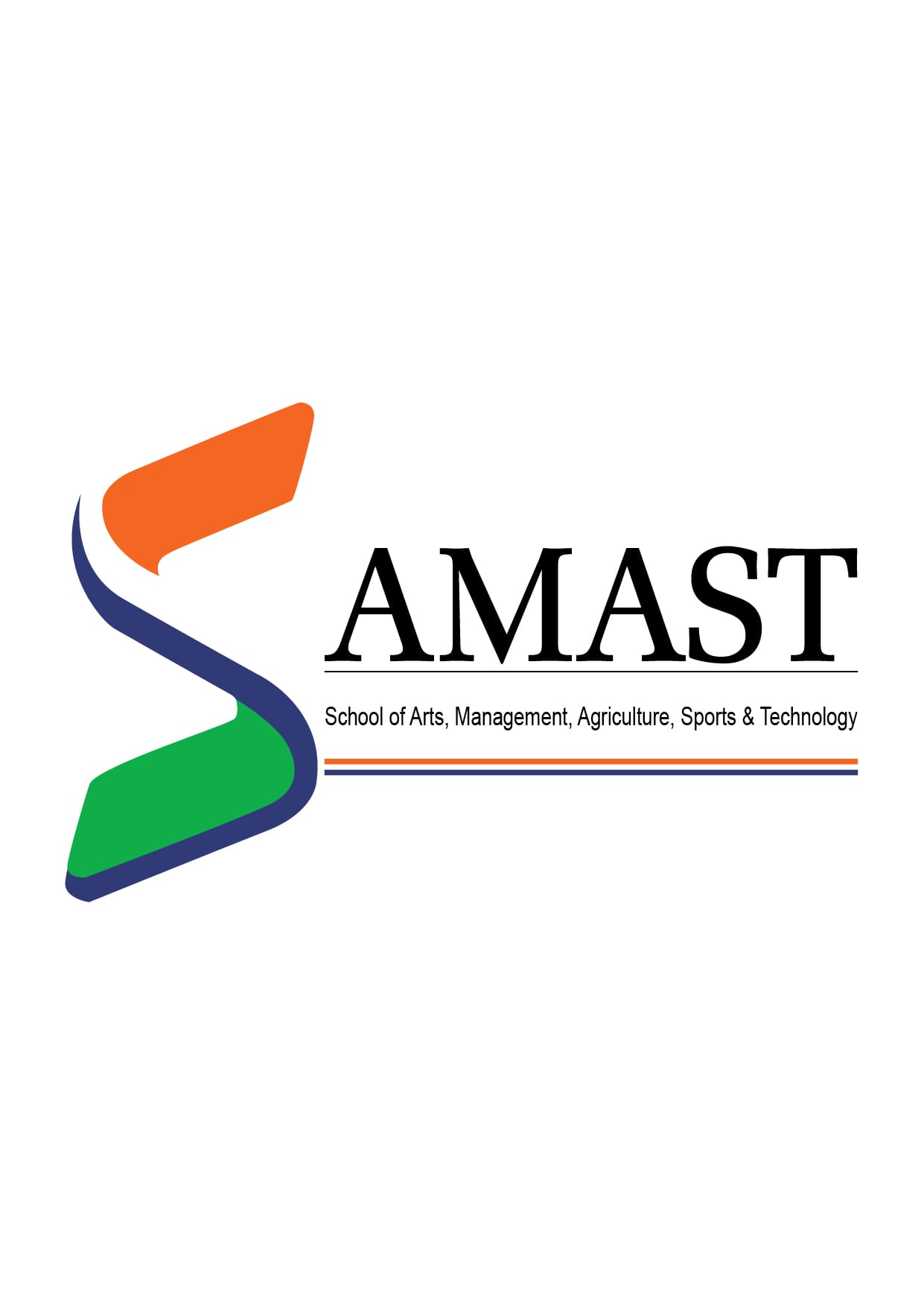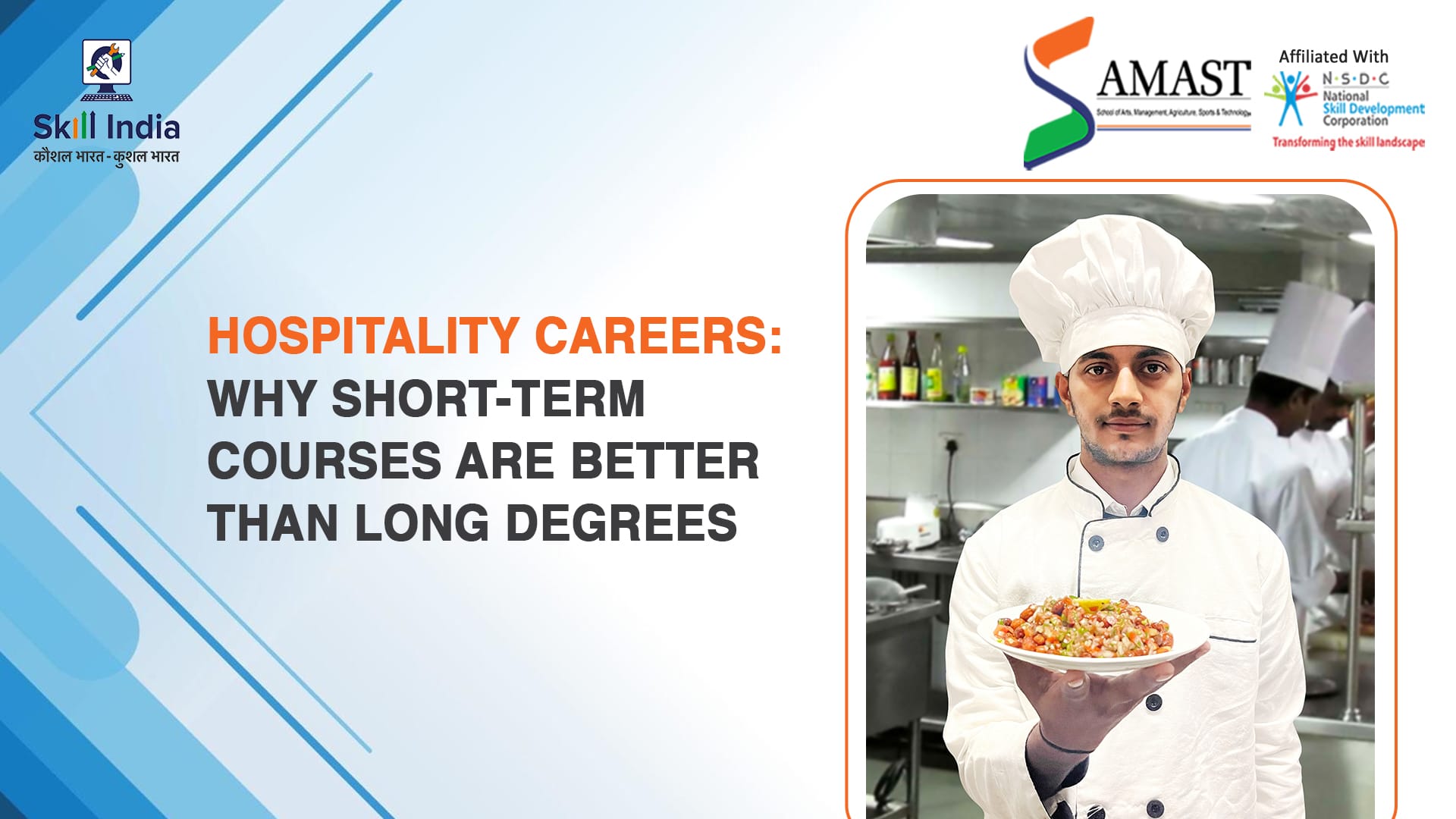Introduction: Rethinking Hospitality Education
The hospitality industry is dynamic, fast-paced, and ever-growing. Traditionally, long-term degrees have been the go-to option for aspiring hospitality professionals. However, short-term courses are increasingly becoming a preferred alternative. These programs, like those offered by SAMAST, provide targeted training, practical experience, and quicker entry into the job market—all without the heavy investment of time and money associated with traditional degrees.
1. Quicker Path to Employment
Short-term courses are designed to fast-track your entry into the workforce. Unlike degrees that take 3-4 years, short-term hospitality programs can be completed in a matter of weeks or months.
Key Advantage:
Gain essential skills quickly and start earning sooner.Example:
A SAMAST-certified housekeeping course can prepare you for immediate employment in top hotels within 3-6 months.
2. Focused, Job-Ready Training
Short-term courses are tailored to meet the specific demands of the industry, emphasizing practical, job-ready skills.
What You’ll Learn:
- Customer service and guest relations.
- Front-office operations and housekeeping.
- Food and beverage service management.
Why It Matters:
Employers value hands-on experience and specific skills over general theoretical knowledge.
3. Cost-Effectiveness
Long-term degrees often come with hefty tuition fees, additional costs, and lost earning potential during the study period. Short-term courses are significantly more affordable, making them accessible to a wider range of learners.
Cost Breakdown:
- Short-term courses: Minimal tuition fees and shorter duration.
- Long-term degrees: High fees, plus years of opportunity cost.
Example:
A SAMAST short-term course costs a fraction of a degree program and delivers comparable career outcomes.
4. Industry-Aligned Curriculum
Short-term courses are designed in collaboration with industry experts to ensure relevance and applicability.
Highlights:
- Training aligned with current market demands.
- Emphasis on soft skills like communication and problem-solving.
- Exposure to the latest tools and technologies in hospitality.
Why It Matters:
Programs like those at SAMAST are updated regularly to reflect trends, ensuring students are always ahead of the curve.
5. Flexibility for Working Professionals
Short-term courses are ideal for individuals who want to upskill or switch careers without disrupting their current jobs.
Flexible Learning Options:
- Part-time and weekend classes.
- Online or hybrid course formats.
Why It Matters:
Working professionals can enhance their skills and transition into hospitality without leaving their current roles.
6. Immediate Placement Assistance
Many short-term hospitality programs, including those offered by SAMAST, provide robust placement support.
Key Features:
- Partnerships with hotels, resorts, and restaurants.
- Interview preparation and career guidance.
- Internships for hands-on experience.
Why It Matters:
With direct placement opportunities, short-term course graduates often secure jobs faster than degree holders.
7. Career Progression Opportunities
Short-term courses offer a stepping stone into the industry, with ample opportunities for growth through experience and further certifications.
Career Pathways:
- Start as a housekeeping attendant or front desk executive.
- Progress to supervisory and managerial roles.
- Pursue advanced certifications for specialization.
Example:
Many SAMAST graduates have progressed to managerial positions within a few years of completing their short-term courses.
Comparing Short-Term Courses vs. Long Degrees
| Aspect | Short-Term Courses | Long Degrees |
|---|---|---|
| Duration | 3-12 months | 3-4 years |
| Cost | Affordable | Expensive |
| Focus | Job-ready skills | Broad theoretical knowledge |
| Placement Opportunities | Immediate, industry-aligned | Delayed |
| Learning Format | Flexible | Fixed, full-time |
| Career Start | Early | Late |
Success Stories: How Short-Term Courses Transformed Careers
Rohit, Hotel Receptionist
“The SAMAST front office course prepared me in just six months. I secured a job at a luxury hotel and am already on track for a promotion.”
Priya, Housekeeping Supervisor
“The practical training I received in SAMAST’s housekeeping course helped me excel in my role. Today, I lead a team of 10 housekeeping staff at a top resort.”
Ankit, F&B Executive
“SAMAST’s food and beverage service course gave me the confidence and skills to manage events. The short duration and industry relevance were exactly what I needed.”
FAQs About Short-Term Hospitality Courses
Q1: Are short-term hospitality courses as credible as degrees?
Yes, short-term courses like SAMAST’s NSDC-certified programs are nationally recognized and provide job-ready training.
Q2: Can I pursue a managerial role after completing a short-term course?
Absolutely. Short-term courses offer entry-level opportunities, and with experience, you can progress to managerial roles.
Q3: Are short-term courses suitable for career changers?
Yes, they are ideal for individuals looking to transition into hospitality without a long-term commitment.
Q4: Do short-term courses offer placement assistance?
Yes, many programs, including SAMAST’s, provide direct placement support and industry connections.
Q5: Are online options available for short-term courses?
Yes, many institutions offer online or hybrid learning formats to accommodate different needs.
Conclusion: A Smarter Choice for Hospitality Careers
Short-term hospitality courses are a practical, cost-effective, and efficient alternative to traditional degrees. They equip you with the skills, confidence, and industry connections needed to thrive in a competitive market. Programs like those offered by SAMAST ensure you’re job-ready in a fraction of the time, allowing you to start earning and advancing your career sooner.
Ready to kickstart your hospitality career? Enroll in SAMAST’s short-term hospitality courses today and take the first step toward professional success!
Share via:

